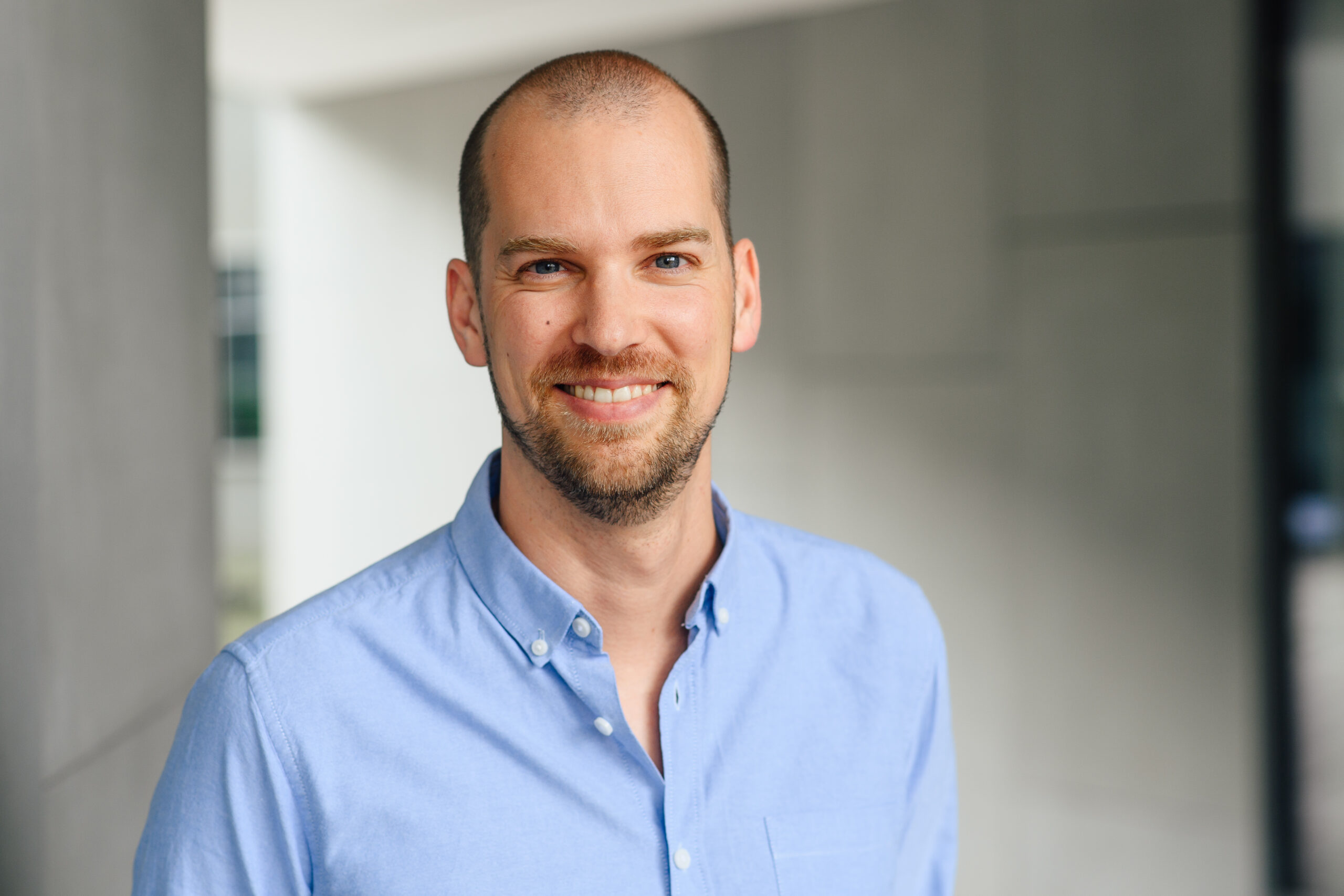Dürfen wir vorstellen: Holger Teske von Gini
Das Arbeiten in der FinTech Branche gleicht einem Kommen und Gehen, setzt ein hohes Maß an Professionalität in einem durchaus lockeren Arbeitsumfeld voraus und ist vor allem geprägt von Innovationen sowie guten, klugen und zukunftsorientierten Ideen, so der weit verbreitete Konsens. Doch wer sind eigentlich die Köpfe und Macher hinter diesen kreativen Denkprozessen, an der Schnittstelle zwischen Finanzen, digitalen Technologien und Gründertum? In unserer Reihe: Die Gesichter der FinTech Branche stellen wir regelmäßig einer Person aus der Payment- und Banking-Industrie die gleichen zehn Fragen. Diesmal beantwortet Holger Teske unsere Fragen.
Dürfen wir vorstellen…
Während unseres Arbeitsalltags begegnen uns immer wieder spannende Menschen, die im gleichen Umfeld tätig sind, die uns nur einmal oder immer mal wieder begegnen oder uns sogar schon privat sehr ans Herz gewachsen sind – jeder von Ihnen hat eine eigene Geschichte. Wir haben ein paar dieser Menschen aus unserem nächsten FinTech-Umfeld interviewt, um ihnen ein Gesicht zu geben. Um zu teilen, warum diese Branche für sie viel mehr ist als eine weitere Art, seine Miete zu bezahlen. Diese Menschen und deren Vita möchten wir in einer ganz eigenen Kategorie kurz porträtieren und vorstellen und haben dazu einen immer gleichen Fragenkatalog entworfen.
Diesmal beantwortet Holger Teske unsere Fragen. Holger ist Gründer und CEO von Gini, einem auf Smart Accounting und Rechnungsassistenz spezialisierten Fintech.
Wer bist Du, was machst Du?
Ich bin Holger Teske, der Gründer & CEO von Gini. Das Unternehmen Gini habe ich vor zehn Jahren mitgegründet, um die Menschheit von lästigem Papierkram zu befreien. Seit 2013 arbeiten wir erfolgreich mit Banken zusammen und helfen ihnen, ihren Kunden den bürokratischen Alltag erleichternde Features anzubieten, z. B. mit unserer Lösung Gini Pay Fotoüberweisung.

Sie hat sich zu einem Must-have-Feature in den Banking-Apps entwickelt und verzeichnet jährlich ein Wachstum von etwa 150 Prozent. Die Kunden lieben es: Im
Appstore erzielt es regelmäßig sehr gute Rezensionen innerhalb der Banking-Apps.
Ihr großer Vorteil: Sie erspart es den Nutzern, die Zahlungsinformationen wie unter anderem die lange IBAN selbst mühsam einzutippen. Aber auch andere Industrien wie Versicherungen und Accounting profitieren von unserer KI-getriebenen Dokumentenanalyse: Sachbearbeitende sparen viel wertvolle Arbeitszeit durch die automatische Extraktion von Daten aus Dokumenten und haben so keine Tipparbeit.
Wie sieht ein klassischer Tag in Deinem Leben aus?
Es gibt bei mir zum Glück keinen klassischen Arbeitstag, denn es stehen immer unterschiedliche Themen an. Ich mag diese Vielfalt. Aufgrund unserer Selbst-Organisation arbeiten die Teams bei Gini sehr eigenverantwortlich und autonom, daher unterscheidet sich meine Arbeit als CEO stark von klassischen Unternehmen. Meine Hauptaufgaben liegen in der strategischen Ausrichtung von Gini und der Weiterentwicklung der Firmenkultur und Organisation. Mein Credo ist es zu identifizieren, wo etwas noch nicht rund läuft und diese Themen mit dem Team zusammen nachhaltig zu lösen, ohne dass es mich dafür dann noch braucht.
Was waren Deine ersten Berührungen mit der Payment- und Banking-Industrie?
Das war 2013. Wir hatten pünktlich zum Start der IBAN in Deutschland eine App herausgebracht, die das Bezahlen von Rechnungen mittels Fotofunktion vereinfachen sollte. Das war zu jener Zeit noch eine Standalone-Lösung mit eigener Payment-Anbindung an Banken. Ende des Jahres fragte die ING bei uns an, ob sie die Funktionalität auch bei sich in die Banking-App integrieren könnten. Seitdem sind wir in fast allen deutschen Banking-Apps gesetzt und sparen den Usern enorm viel Zeit und Nerven beim Bezahlen von Rechnungen.
Wann hast Du das Wort FinTech das erste Mal wahrgenommen?
Das war ebenfalls ungefähr 2013. Für mich wurden Fintechs damals als Konkurrenz für die Banken wahrgenommen, sie haben Stück für Stück die Geschäftsmodelle der Banken attackiert. Mit Gini sind wir von Anfang an einen anderen Weg gegangen. Wir haben den Austausch mit den Banken gesucht und uns als Partner positioniert. Unsere Produkte sollten einen Mehrwert für Banken und ihre Kunden bringen; und für Banken damit auch ein positives, innovatives Image generieren.
Wie definierst Du FinTech?
FinTech ist in meiner Definition Technologie rund um die Finanzwelt, die insbesondere einen Fokus auf den Enduser hat und ihm Innovation und bessere Usability, also einfachere Prozesse, beschert.
Was glaubst Du machen etablierte Unternehmen besser als FinTechs?

Der große Vorteil etablierter Unternehmen ist, dass sie schon Millionen an Endkunden haben. Ihre Brands sind bekannt und die Mehrheit der Deutschen vertraut diesen Marken. FinTechs dagegen müssen erst einmal von Null anfangen, sich eine Userbase erarbeiten und dabei auch das Vertrauen der Endkunden gewinnen. Gerade in Deutschland ist das bei dem doch sehr sensitiven Thema Finanzen nicht immer einfach, eine relevante Masse für seine Produkte zu bekommen.
Was kann man von FinTechs lernen?
Das ist eine Menge. FinTechs sind schnell und agil, sie reagieren dementsprechend auf den Markt. Sie gehen neue Wege und probieren Neues aus. Dabei sind sie mutig. Sie zeigen Leidenschaft und Begeisterung für die Sache. Sie stellen den User mit seinen Bedürfnissen und die Usability in den Vordergrund. FinTechs machen etwas scheinbar Unmögliches möglich. Sie denken in Chancen und weniger in Risikovermeidung.
Wieso tun sich etablierte (große) Unternehmen bei der Digitalisierung eigentlich so schwer?
Meiner Meinung nach ist das sehr in der über Jahrzehnte aufgebauten Firmenkultur verankert. Große Unternehmen bräuchten einen radikalen Wandel, der vermutlich viele Mitarbeiter vor den Kopf stoßen und überfordern würde, da sie sehr viele Jahre anders gelebt haben. Zudem braucht es sehr viel Mut und Budget, um Altes hinter sich zu lassen und sozusagen am besten Projekte auf der grünen Wiese zu beginnen. All das erfordert darüber hinaus eine gute Fehlerkultur, denn Digitalisierung bedeutet auch, viel auszuprobieren und aus Fehlern zu lernen. Wenn allerdings Fehler zu machen die Karriere gefährdet, fehlt ein Anreiz, neue Wege zu gehen.
Was macht deinen Job täglich interessant?
Ich glaube sehr stark an unsere Mission, den lästigen bürokratischen Aufwand loszuwerden. Dies für mich und andere zu ermöglichen, gibt mir jeden Tag neue Energie und Ideen für neue Produkte. Außerdem ist meine Arbeit sehr abwechslungsreich und stellt mich immer wieder vor neue Herausforderungen, an denen ich weiter wachse. Wir arbeiten bei Gini komplett selbst-organisiert, ohne klassische Hierarchien und Jobtitel und jeder Mitarbeiter genießt extrem viel Autonomie und Vertrauen. Zu sehen, wie die Ginis hiermit umgehen, daran wachsen und wie es jeden einzelnen Gini vorwärts bringt, begeistert mich jeden Tag aufs Neue.
Was würdest Du beruflich machen, wenn Du nicht in der Payment- und Banking-Industrie arbeiten würdest?
Vermutlich würde ich eine Schreinerei aufbauen, denn Holz ist meine zweite große Leidenschaft. Ich liebe es, mit diesem natürlichen Rohstoff zu arbeiten und am Ende etwas Anfassbares in den Händen zu halten.
Worauf bist du stolz?
Zehn Jahre Gini – darauf bin ich unglaublich stolz. Ein Produkt entwickelt zu haben, das von fast sechs Millionen Usern genutzt wird und zu einer eigenen Kategorie im Test von Banking-Apps geworden ist – das ist großartig. Vor allem sind wir damit unserem Ziel näher gekommen, die Menschheit von Papierkram zu befreien.
„Wir sind unserem Ziel näher gekommen, die Menschheit von Papierkram zu befreien.“
Stolz macht mich auch, mit unserem Konzept der Selbst-Organisation führend im Thema „New Work“ zu sein. Wir sind damit bereits seit über vier Jahren erfolgreich und extrem attraktiv als Arbeitgeber. Es ist wunderbar zu sehen, wie stark sich die Ginis fachlich und insbesondere auch persönlich bei uns entwickeln und wachsen.
Wieso gibt es nicht mehr Frauen in der Tech-Branche?
Das ist ein großes Thema mit vielschichtigen Meinungen und Ansichten. Bei Gini kommt es einzig und alleine auf die Qualifikation und zwischenmenschliche Fähigkeiten an. Wir haben unseren Recruitingprozess auch konsequent daraufhin ausgerichtet. Damit hat es sich tatsächlich einfach ergeben, dass bei uns etwa 50% Frauen quer durch alle Disziplinen arbeiten, ebenso wie das Team mit Mitarbeitenden von fünf Kontinenten sehr international ist. Ich persönlich schätze diese Diversität sehr, denn durch die vielen verschiedenen Blickwinkel auf ein Thema kommt man inhaltlich immer zu einem besseren Ergebnis.
Bei welchem Unternehmen würdest Du gerne mal einen Tag arbeiten?
Bei Tesla oder Space-X. Ich finde es faszinierend, wie Elon Musk es schafft, große Visionen aufzubauen und sich diesen mit solch einer rasanten Geschwindigkeit zu nähern.
Mit wem würdest Du gerne ein Bier trinken?
Jony Ive. Ich liebe seine Arbeiten und seinen kompromisslosen Fokus auf den Nutzer. Für mich ist dies bei Gini ein sehr großer Antrieb. Mich mit ihm darüber auszutauschen und von ihm inspirieren zu lassen, würde mich extrem freuen.




